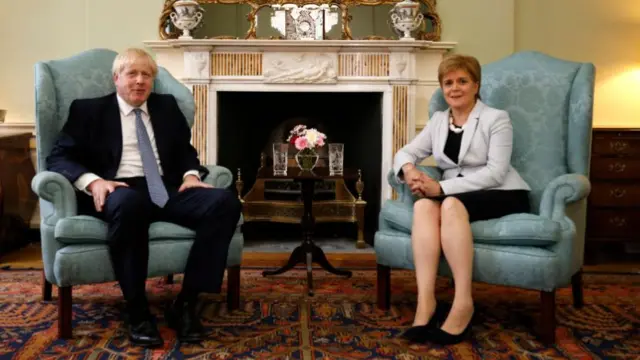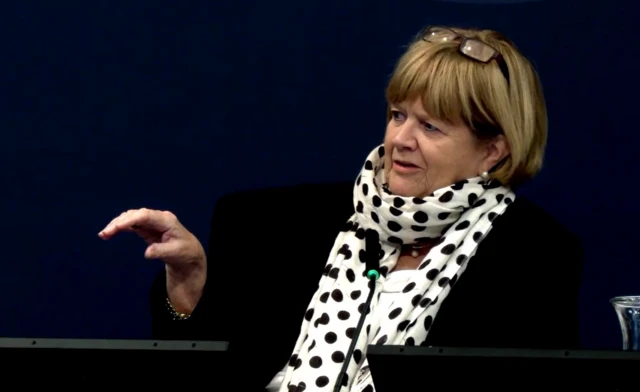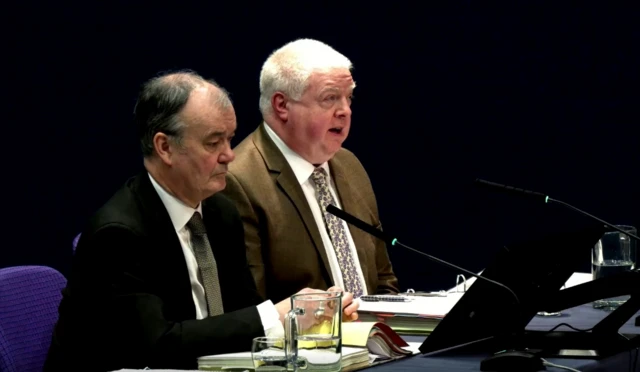UK Covid Inquiry: The headlinespublished at 17:08 GMT 19 January 2024
The UK Covid Inquiry has adjourned for the weekend. If you're just joining us here are the headlines from today's evidence:
- The inquiry heard official confirmation that the former First Minister Nicola Sturgeon did not keep any of her WhatsApp messages or texts during the Covid pandemic
- The messages were deleted in routine tidying up of inboxes or changing of phones
- Sturgeon's deputyJohn Swinney's WhatsApp messaging was set to auto-delete
- Lesley Fraser, who is the director general corporate of the Scottish government, told the inquiry that she did not accept that the Scottish government's record retention policies were not fit for purpose during the pandemic
- She did say she would accept the "hurt and frustration" about not being able to access WhatsApp messages and the policies should be reviewed
- Former top civil servant Ken Thomson, the second witness this morning, said it was "very rare" for the first minister to message him
- National Clinical Director Jason Leitch messaged that "WhatsApp deletion is a pre-bed ritual"
- The relationship between Sturgeon and Johnson "had not been built up in peacetime"
- Nicola Sturgeon feared England moving restrictions from Stay at Home to Stay Alert would be "catastrophic"
- Sturgeon said she would decide the messaging in Scotland, not Boris Johnson
- Public Health Scotland witnesses pointed out the Nike conference in Edinburgh "was not ground zero" for the pandemic here, though it was the first recognised outbreak
- A Public Health Scotland report, external found a single case among the 71 delegates led to 38 further infections
That ends today's live coverage of the UK Covid Inquiry in Edinburgh. Today's editor was Paul McLaren.
The writers were Paul O'Hare and Craig Hutchison.


